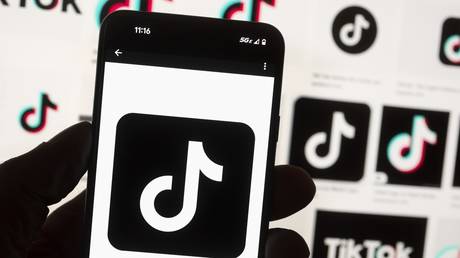China responds after FBI labels TikTok ‘national security threat’
Beijing slammed Washington for “spreading disinformation” after FBI head Christopher Wray voiced “national security concerns” over TikTok

China responds after FBI labels TikTok ‘national security threat’

The Chinese government has denounced Washington for “disinformation” after the head of the FBI said that TikTok – a Chinese-owned social media platform – posed a serious national security threat to the United States.
telling reporters that Washington is merely seeking to discredit a large Chinese firm competing with Western social media giants.
“Spreading disinformation and then using it to hobble Chinese companies has become a go-to tool used by the US government. China is firmly against this,” Mao said, urging US officials to “act more responsibly, and take more credible steps to respect and observe the international rules that emphasize fairness, openness and non-discrimination.”
During a House Homeland Security Committee hearing addressing “worldwide threats to the homeland” on Tuesday, Republican Rep. Diana Harshbarger claimed TikTok was “designed to hook American children” on social media, and cited recent reports that the platform plans to monitor particular users “for the purposes of surveying individual US citizens.” She went on to ask Wray if the FBI considers TikTok a “significant national security threat” given those reports, or whether the bureau had investigated the company’s alleged “ties to the [Chinese Communist Party].”
“I would say we do have national security concerns, at least from the FBI’s end, about TikTok,” Wray said. “They include the possibility that the Chinese government could use it to control data collection on millions of users, or control the recommendation algorithm – which could be used for influence operations if they so chose – or to control software on millions of devices.”
“closed, classified setting,” only saying there are “scores of investigations open into the China threat” without elaborating.
TikTok, for its part, has denied that it ever planned to track Americans, telling Forbes, which first published the allegations, that it “does not collect precise GPS location information from US users, meaning TikTok could not monitor US users in the way the article suggested.” The company said the Forbes report lacked “journalistic integrity,” and accused the outlet of deliberately omitting information that would have disproved its core claim.












